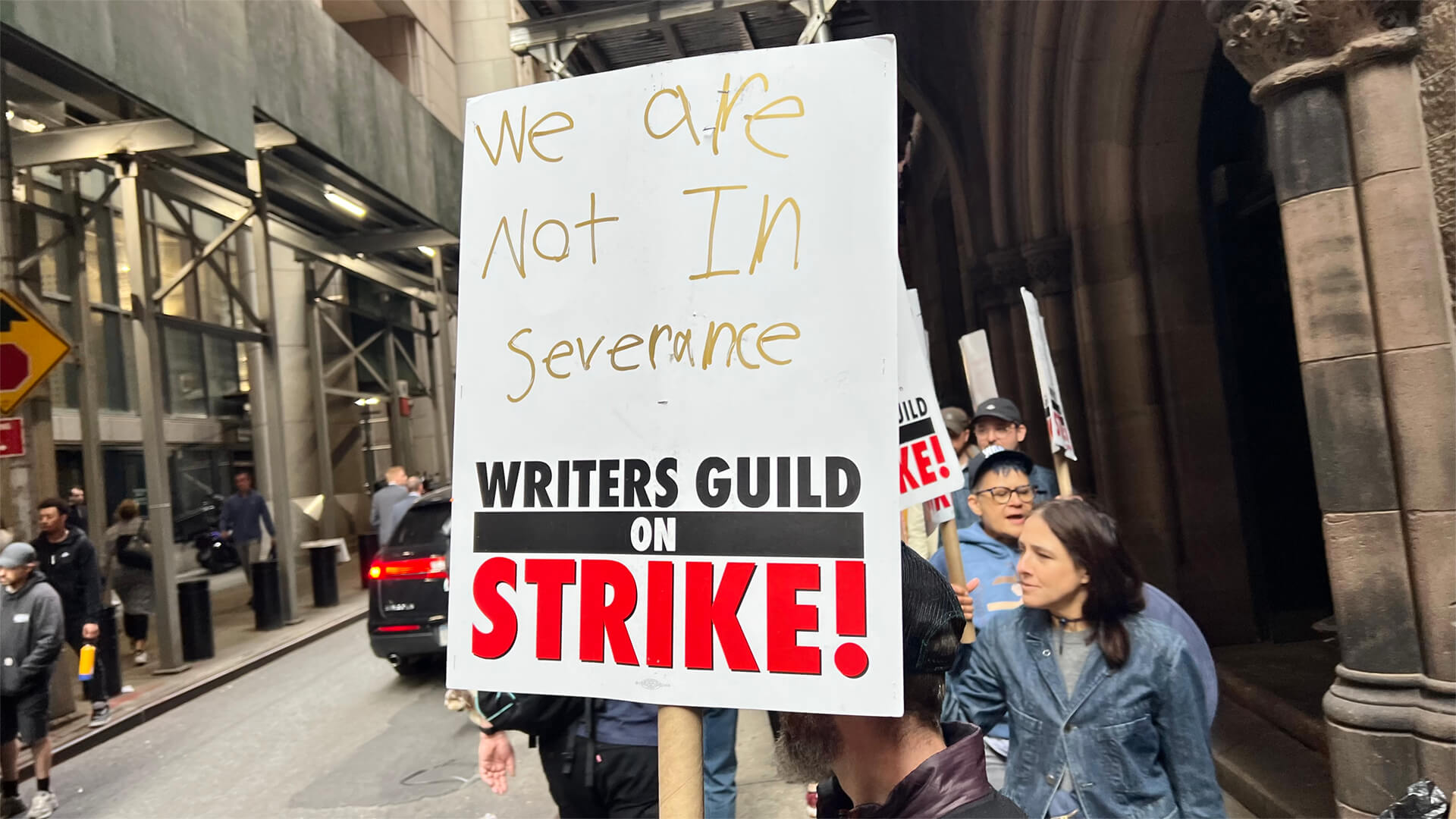The entertainment industry is changing, and the writers and actors are making sure their voices are heard. With all the technological changes hitting Hollywood, strikes like these shouldn’t come as a surprise.
As we’ve seen with the fall of Blockbuster or the demise of RedBox, this industry is constantly evolving. The old revenue models must be reimagined and updated as we move into the streaming service era.
But what does that mean for the screenwriters who can no longer determine viewership metrics and get paid royalties? Or for the background actors sacrificing their digital rights so CGI copies of them can be made and used forever?
This strike is an inevitable step in Hollywood’s evolution, and these questions will change the industry forever.
Here at Zeihan On Geopolitics we select a single charity to sponsor. We have two criteria:
First, we look across the world and use our skill sets to identify where the needs are most acute. Second, we look for an institution with preexisting networks for both materials gathering and aid distribution. That way we know every cent of our donation is not simply going directly to where help is needed most, but our donations serve as a force multiplier for a system already in existence. Then we give what we can.
Today, our chosen charity is a group called Medshare, which provides emergency medical services to communities in need, with a very heavy emphasis on locations facing acute crises. Medshare operates right in the thick of it. Until future notice, every cent we earn from every book we sell in every format through every retailer is going to Medshare’s Ukraine fund.
And then there’s you.
Our newsletters and videologues are not only free, they will always be free. We also will never share your contact information with anyone. All we ask is that if you find one of our releases in any way useful, that you make a donation to Medshare. Over one third of Ukraine’s pre-war population has either been forced from their homes, kidnapped and shipped to Russia, or is trying to survive in occupied lands. This is our way to help who we can. Please, join us.
Transcript
Hey everybody. Peter Zeihan here coming to you from Seattle. It is late October and this is one of those that can store. So you probably won’t see it till November. But whatever the topic I want to discuss today is strikes in Hollywood of all places. We’ve got two separate strikes going on, one of which has at least temporarily been resolved, one involving the writers, which for the moment is behind us.
They’ve settled and one involving the actors. And the issue is, honestly, one of technology with the advent of a sufficient processing power to allow streaming services over Internet connections. We now have a number of major providers such as Hulu or Apple or Amazon or Netflix that are not just providing legacy shows, but new shows and transmitting them to their end users and consumers to a completely different network that doesn’t use the normal TV radio approach, VHF, things like that.
Well, this means different models used to be that all the income came pretty much from advertising, and now there are different ways to do it with, say, a per month subscription charge. You’re going to see more and more and more in this going forward. So we have to split it in those two factions. So first, the labor that deals with the screenwriting and then the labor that deals with the acting.
So screenwriters, this is going to be an ongoing issue largely because of the revenue play. When screenwriters used to produce things, whether it was for television or movies before, they’d work directly with the movie house, which would generate their income from either advertising or ticket sales. Now that you’ve got streaming, the question is what constitutes readership or viewership?
Because it’s not the same model. And is it something that’s a once and done? Is it something that gives them income over time? Because unless you’re an A-lister where you can demand whatever terms you want, everyone else has to kind of suffer through and for the writing. The rise of air is providing more and more support for people who are particularly creative and leaving everyone else by the curb.
But as problematic as that is, from the point of view of the writers, it’s a disaster for the actors. We already have technology that allows us to fill in the background with either a complete greenscreen generated system or even to a certain degree, extras. And I think the the two movies that have demonstrated how this technology is coming along, the best one is Ant-Man two, the one where we had some characters who in today’s world are in their sixties.
But we had a couple of scenes where they were shown when they were in their twenties, in their thirties, and you can use the technology to make people look younger. We’ve also had World War Z, which is a hot mess, great book, horrible movie. But when you had the swarms of zombies, you know, those weren’t real zombies. They were all CGI generated.
And we could see how they looked very, very real. Well, you play both of those movies forward because those are both five years old now. And we’re getting to the point where you can film an extra from a number of different angles and insert them into the background just fine. And so part of the reason that the actors were striking is because they were being asked to sign documents to basically surrender their future digital rights.
So you’re an extra in this movie, you’re filmed, and then they reserve the right to recreate you royalty free in the future. And obviously, if you’re a low ranking actor or an extra an aspiring actor that pretty much end your career. It won’t really hurt the A-listers, but pretty much everybody else would be left in the cold and very soon we’re going to be able to take footage from people who are dead and use A.I. Technologies to put them into leading roles if we want to.
And so the the balance, the ability for you to profit off your skill set in your presence all of a sudden isn’t there anymore? And it’s a question of who generates the revenue at the moment, the law suggests it’s the people who control the A.I. driven software. It actually designed the movies in the first place. So from a writers point of view, this is going to get a little bit stickier as we move forward, but it’s going to be more of an evolutionary process.
But for the actors, you’re actually looking at the evisceration of an entire class of people, and that will take with it the way movies are produced. Because if you can just have a handful of A-listers and be listers who are doing kind of a number of the main roles and have the star power to draw people and everything else is computer generated and it looks as real as the real thing.
Then we’re in a fundamentally different model for everything and we’re probably going to be in that environment by the end of this decade. So one way or another, Tinseltown is going to be very, very, very different, and it’s probably going to have a lot fewer people.







